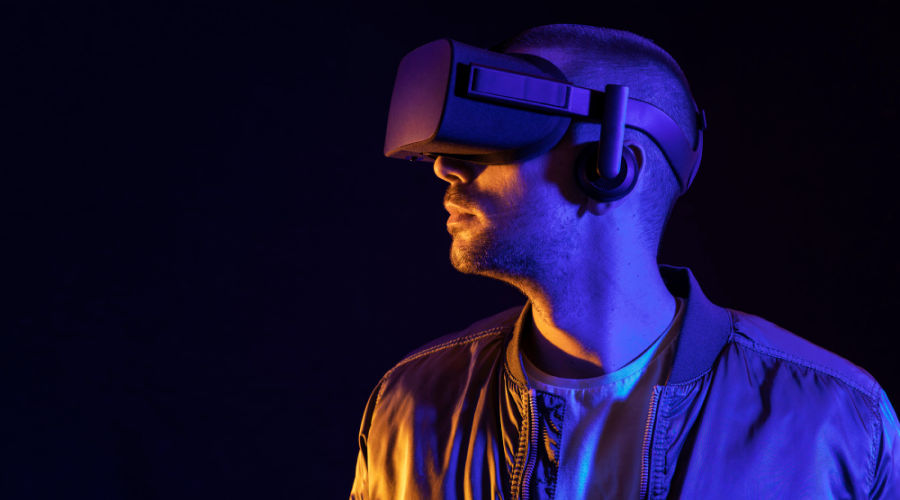How Will Web3, The Future Of The Internet Change The World
The internet has come a long way since its inception. From its humble beginnings as a simple tool for sharing text and images, it has grown into a vast network of interconnected systems that power everything from social media to e-commerce. With each iteration, the internet has become faster, more powerful, and more user-friendly. Today, we are witnessing the rise of Web3 , the latest iteration of the internet.
The Internet has been an essential part of our lives for decades. The way we communicate, access information and do business has changed. However, the Internet as we know it today is centralized, meaning that power is concentrated in the hands of a few big tech companies. This has led to concerns about data privacy, censorship, and the potential for abuse of power. Enter Web3 and blockchain technology, which have the potential to revolutionize the Internet and change the world as we know it.
Web3 refers to the next generation of the Internet, where decentralization is the norm. Decentralization means that power is distributed among many nodes in a network, rather than concentrated in a few hands. This is made possible by blockchain technology, which is the backbone of Web3. Blockchain technology is the backbone of Web3. It is a distributed ledger technology that enables secure and transparent transactions. Blockchain allows for the creation of decentralized applications, or DApps, that run on a peer-to-peer network, without the need for intermediaries. This means that users have full control over their data, and transactions are transparent and tamper-proof.
The potential of Web3 is vast. It could transform the way we interact with each other online, and the way we conduct business. Here are some of the ways Web3 could change the world.
Decentralized Finance (DeFi)
Decentralized Finance, or DeFi, is a subset of Web3 that aims to replace traditional financial institutions with decentralized ones. DeFi is built on blockchain technology and enables users to conduct financial transactions without the need for intermediaries such as banks. This could lead to lower transaction fees, faster transactions, and greater financial inclusion. DeFi has already gained significant traction, with the total value locked in DeFi protocols exceeding $100 billion in early 2022.
Decentralized Social Media
Social media is currently dominated by a few big tech companies, which have been criticized for their handling of user data and censorship practices. Web3 has the potential to disrupt this by enabling decentralized social media platforms. These platforms would be owned and operated by their users, rather than a central authority. They would be built on blockchain technology, ensuring greater transparency and data privacy.
Privacy and Security
Web3 has the potential to improve privacy and security online. With Web3, users have more control over their data and can choose how and where it is stored. This reduces the risk of data breaches and data leaks, which have become all too common in Web2.
Trustless Transactions
Web3 enables trustless transactions through the use of smart contracts. A smart contract is a self-executing contract in which the terms and conditions between a buyer and a seller are written directly in lines of code. The code and the agreements contained therein exist on a decentralized blockchain network, meaning that transactions can take place without the need for intermediaries.
New Business Models
Web3 could open up new business models, particularly in the realm of decentralized finance (DeFi). DeFi applications allow for peer-to-peer lending, borrowing, and trading without the need for intermediaries. This could potentially reduce costs and increase financial inclusion.
Digital Identity
Web3 has the potential to create a more secure and decentralized form of digital identity. Users could control their own digital identity on a decentralized network, reducing the risk of identity theft and fraud.
Why is Web 2 better than Web 3.0?
Web 2.0, also known as the "social web," was a significant improvement over the first generation of the internet. It introduced the concept of user-generated content, where individuals could create and share their content, and social media platforms were created. Web 2.0 was primarily focused on user engagement and interaction, which made it easier for people to connect and collaborate online. However, it was still centralized and controlled by a few big companies, which meant that users had little control over their data and privacy.
Web 3.0, on the other hand, takes the concept of user engagement and collaboration to a whole new level. Web 3.0 is decentralized, meaning that there is no single controlling authority.
Instead, it is powered by blockchain technology, a distributed ledger system that allows users to store and exchange data securely without the need for intermediaries. This means that users have complete control over their data and can choose who has access to it.
Moreover, Web 3.0 is designed to be more intelligent and intuitive than its predecessor. With the help of artificial intelligence, it can understand and interpret user intent and provide more personalized and relevant experiences. Web 3.0 also has the potential to transform various industries, such as finance, healthcare, and logistics, by enabling secure and efficient data sharing and collaboration.
Conclusion
While Web 2.0 was a significant improvement over the first generation of the internet, Web 3.0 takes it to the next level. With its decentralized and secure infrastructure, it offers users complete control over their data, providing greater privacy and security. Additionally, its intelligent and intuitive design has the potential to transform various industries, making Web 3.0 a better option for the future of the internet.
Overall, Web 3.0 aims to create a more decentralized, interoperable, and trustless web infrastructure that is owned and controlled by its users, and enables new business models and opportunities.
Frequently Asked Question
Ans - Web3 is the next version of the internet that uses blockchain to give users more control and security.
Ans - DeFi replaces banks with decentralized systems for direct financial transactions, reducing fees and increasing access.
Ans - Web3 allows users to manage their own digital identities, reducing the risk of identity theft.
Ans - Web3 enables new business models like direct lending and trading, cutting costs and opening new opportunities.
Ans - Web3 decentralizes data control, improving security and reducing data breaches.







